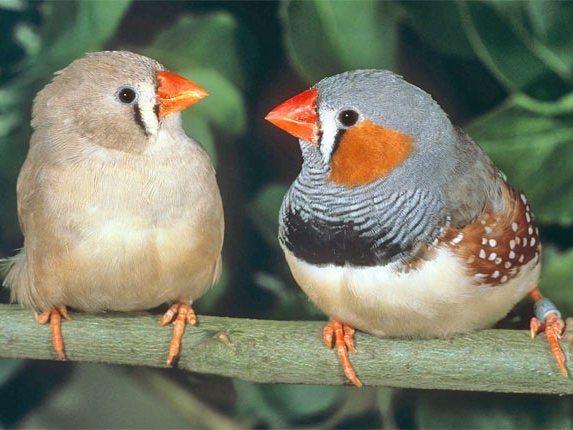Traffic noise may make birds age more quickly, study finds
High levels of artificial noise blamed for shortening lifespans in the wild

Your support helps us to tell the story
From reproductive rights to climate change to Big Tech, The Independent is on the ground when the story is developing. Whether it's investigating the financials of Elon Musk's pro-Trump PAC or producing our latest documentary, 'The A Word', which shines a light on the American women fighting for reproductive rights, we know how important it is to parse out the facts from the messaging.
At such a critical moment in US history, we need reporters on the ground. Your donation allows us to keep sending journalists to speak to both sides of the story.
The Independent is trusted by Americans across the entire political spectrum. And unlike many other quality news outlets, we choose not to lock Americans out of our reporting and analysis with paywalls. We believe quality journalism should be available to everyone, paid for by those who can afford it.
Your support makes all the difference.Traffic noise may make birds age more quickly than is natural, scientists have found.
A study on zebra finches suggested those exposed to the sounds of road vehicles were less protected from damage linked with ageing.
Previous research has concluded that urban birds have shorter lifespans than their rural counterparts, and academics believe high levels of artificial noise may play a role.
Researchers at the Max Planck Institute for Ornithology in Germany and North Dakota State University investigated the effect of traffic noise on the length of the telomere – caps on the ends of chromosomes that protect genes from damage – of offspring zebra finches, a species native to Australia.
Shorter telomeres indicate accelerated biological ageing.
The study, published in Frontiers in Zoology, said that zebra finches exposed to traffic noise after they had left the nest had shorter telomeres at 120 days old even than those exposed to noise before they had left the nest and whose parents were exposed to traffic noise during courtship, egg-laying, and nesting.
Finches exposed to noise after leaving the nest also had shorter telomeres than those that had not been exposed to traffic noise at all.
Although birds may seem to be adapting to life in noisy cities, they may actually be ageing faster
Dr Adriana Dorado-Correa, co-author of the study, said: “Our study suggests that urban noise alone, independent from the many other aspects of city life, such as light pollution or chemical pollution, is associated with increased telomere loss and may contribute to ageing in zebra finches.
“Our study is a first step towards identifying the causal mechanisms that may account for differences in lifespan observed between birds living in urban or rural environments.”
Co-author Dr Sue Anne Zollinger said: “Cellular ageing as a result of urban stressors is something that may not have a very visible impact, but our study indicates that although birds may seem to be adapting to life in noisy cities, they may actually be ageing faster.
“It may be important to consider developmental stages in birds when studying the effects of urbanisation, as the mechanisms by which these human-induced habitat changes impact individuals may change throughout their lifetime.”
The authors suggested that the time between 18 and 120 days after hatching is a critical period during which birds are more affected by noise. This period is when zebra finches begin learning songs, which may make them more sensitive to noise
By contrast, birds may be less sensitive to noise while still in the nest, and parent birds may be able to make behavioural changes to protect offspring from the negative effects of noise exposure, the researchers said.
The traffic noise used in the study consisted of recordings of street traffic that mimicked typical urban noise patterns.
Previous research has found birds sing differently in response to industrial or traffic noise, which potentially affects their ability to attract mates and defend their territory.
A 2016 study suggested traffic noise may endanger wild birds by making it harder for them to hear alarm calls.
Join our commenting forum
Join thought-provoking conversations, follow other Independent readers and see their replies
Comments